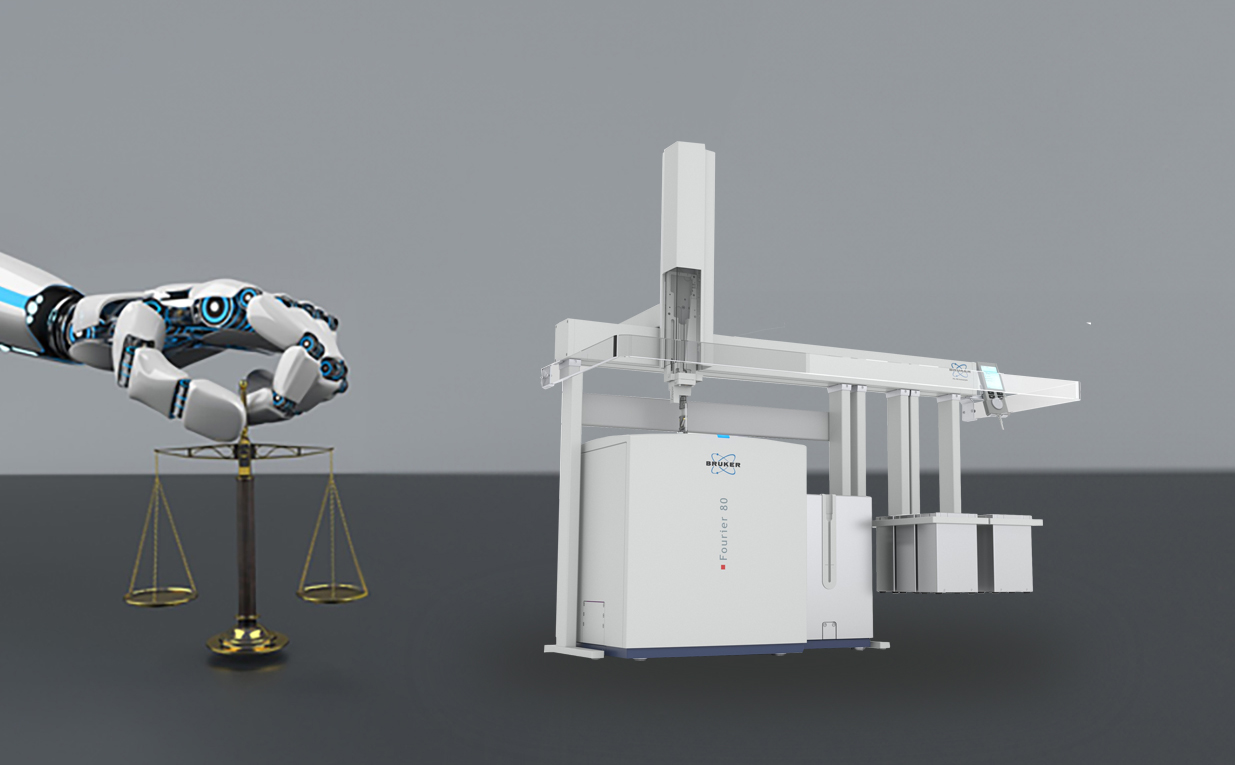

Benchtop NMR for Quality Control
tailored for Pharmaceutical Quality Control
Highlights
From R&D to Routine Quality Control
NMR is well known for its unique structural analysis capabilities and its abilities to provide accurate quantitative results without requiring reference standards. Traditionally used in research with high-field spectrometers, NMR is now more accessible thanks to benchtop systems like the Bruker Fourier 80. These advancements make NMR-based quality control procedures even more attractive, especially within the modern framework of Analytical Quality by Design (AQbD).
Versatility and Robustness for Modern QC Procedures
NMR-based procedures have gained significant attention with the recent revision of ICH Q2 and the AQbD paradigm implemented by ICH Q14. With a unique combination of versatility and robustness, NMR is perfectly tailored for both qualitative and quantitative release tests. Its capabilities cover a broad spectrum, from simple identity testing to complex quantitative assays and impurity content determination. NMR can be tuned for both small and large molecules, allowing for a wide range of applications, from raw material control to drug product release testing. The commonality among NMR-based methods enables the implementation of platform procedures. It streamlines all stages of procedure life cycles, reducing operational expenses and turnaround times compared to traditional chromatographic techniques
Built-in Compliance for all QC labs
The Bruker Fourier 80 benchtop NMR spectrometer features a compact, cryogen-free design with minimal maintenance, making it ideal for quality control labs. Full compliance with GLP/GMP regulations is supported by GxP Solution. It enables easy implementation of compendial and custom testing procedures and offers an ideal, cost-efficient solution for laboratories to integrate and maximize the benefits of
NMR as a modern technology for QC.
Applications
Testimonials
Cassie Yang, Principal Research Scientist at Abbvie
“The Fourier 80 has facilitated the implementation of workflows for controlling the quality of our incoming materials. It offers a simpler and cost-efficient alternative to high-field NMR systems. Combined with the intuitive interface of Mdrive, our non-expert users can directly submit their samples and retrieve their data with ease, while ensuring data integrity. As analysts, our role now only involves validating the final results. With no maintenance requirements, utilizing the Fourier 80 for our quality control applications has thus allowed us to both save time on high-field instruments and reduce the workload of our analytical team. This way, as experts, we can focus on addressing more demanding analytical challenges, while our users independently perform their QC analysis on raw materials.”
Support
LabScape
Service & Life Cycle Support for Magnetic Resonance and Preclinical Imaging
Bruker’s commitment to provide customers with unparalleled help throughout the buying cycle, from initial inquiry to evaluation, installation, and the lifetime of the instrument is now characterized by the LabScape service concept.
LabScape Maintenance Agreements, On-Site On-Demand and Enhance Your Lab are designed to offer a new approach to maintenance and service for the modern laboratory











